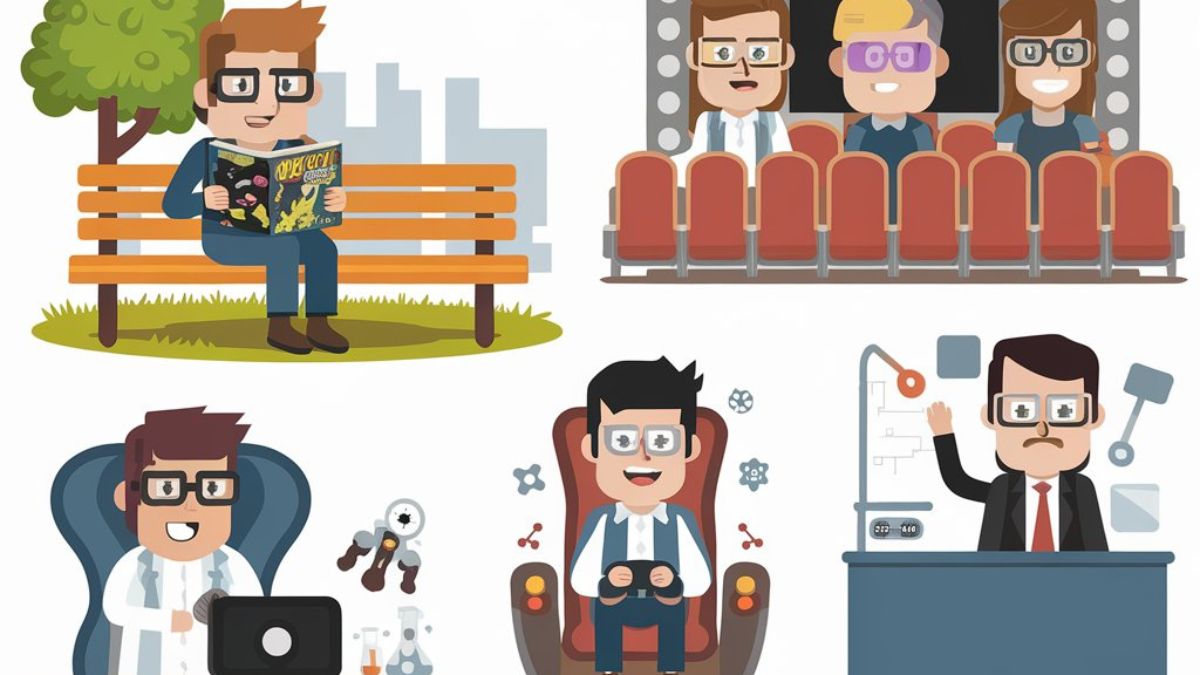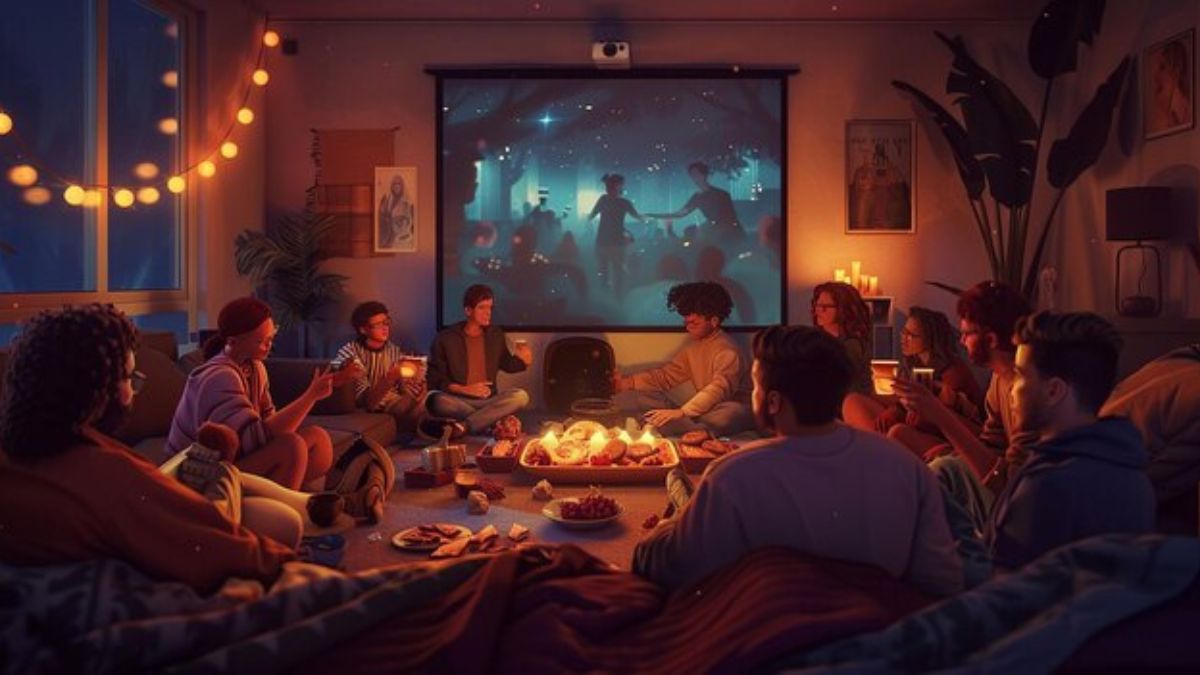Imagine settling into your seat, the lights dimming around you, and the excitement of watching a new blockbuster film fills the air. But what if that thrill is overshadowed by discomfort? Can You Watch Movies in Theater with Eusphatian Tue Dysfunction, this scenario can feel all too familiar. The struggle to enjoy a simple movie night out can lead to questions about whether it’s even possible to sit through an entire feature film in a theater setting.
This article dives deep into understanding Eusphatian Tue Dysfunction, its symptoms, and how it impacts daily activities like enjoying movies. We’ll also provide helpful tips for managing this condition while still savoring cinematic experiences. Whether you’re a movie buff or just looking for ways to enjoy films without stepping foot in a theater, keep reading!
Understanding Eusphatian Tue Dysfunction
Can You Watch Movies in Theater with Eusphatian Tue Dysfunction is a lesser-known condition that affects the Eustachian tubes, which connect the middle ear to the back of the nose. When these tubes malfunction, they can lead to various discomforts in daily life.
This dysfunction often results from inflammation or blockage caused by allergies, infections, or even changes in altitude. Affected individuals may experience pressure imbalances and difficulty equalizing ear pressure.
The sensation of fullness or popping in the ears can be frustrating. It might feel like your ears are plugged up during flights or while diving underwater—moments when proper function is crucial.
Though it’s not widely discussed, understanding this condition is essential for those affected. Awareness helps pave the way for appropriate management strategies and better quality of life amidst everyday challenges.
Common symptoms of Eusphatian Tue Dysfunction
Eustachian Tube Dysfunction (ETD) can manifest through various symptoms that may vary in intensity. One of the most common signs is a feeling of fullness or pressure in the ears. This sensation often resembles what you experience during air travel or while diving.
Another prevalent symptom is ear pain, which can range from mild discomfort to sharp aches. Many individuals also report difficulty hearing or experiencing muffled sounds, making conversations challenging.
Tinnitus, a ringing or buzzing sound in the ears, frequently accompanies ETD. This persistent noise can be distracting and frustrating for those affected.
Some people might find themselves dealing with balance issues as well. When the Eustachian tubes are not functioning properly, it can lead to dizziness or unsteadiness.
These symptoms can significantly impact daily life and activities like watching movies in theaters, where audio clarity plays an essential role.
How it affects daily activities like watching movies in theaters
Eustachian Tube Dysfunction can significantly impact daily activities, especially when it comes to enjoying a trip to the movies. The discomfort and pressure in your ears may distract you from the film’s storyline or even make it hard to hear dialogue clearly.
Imagine settling into a plush theater seat, popcorn in hand, only for that familiar sensation of fullness or popping in your ears to arise. It can be unsettling and detracts from the immersive experience that cinema offers.
Additionally, loud movie sounds might exacerbate existing ear discomfort. You might find yourself adjusting your position frequently or leaving early due to irritation.
Socializing during a movie night becomes challenging too. Engaging with friends about the film could feel overwhelming if you’re distracted by physical symptoms related to Eustachian Tube Dysfunction.
Tips for managing Eusphatian Tue Dysfunction while watching movies
Managing Eusphatian Tube Dysfunction while watching movies can be challenging, but there are strategies to make it more comfortable.
First, choose a seat closer to the exit. This makes it easier to step out if you experience discomfort or need to relieve pressure in your ears.
Consider using earplugs designed for noise reduction. They can help minimize sound intensity without blocking all audio, making the experience less overwhelming.
Stay hydrated throughout the film. Drinking water helps maintain moisture and can alleviate some symptoms related to pressure changes.
Take breaks when necessary. If you feel any discomfort rising during a tense scene, pausing for a moment might provide relief before continuing with the movie.
Avoid heavy meals right before heading into the theater. Eating light snacks may prevent added pressure on your eustachian tubes as well.
Alternative ways to enjoy movies without going to a theater
If you’re looking to enjoy movies without the theater experience, there are plenty of options available. Streaming services have transformed how we watch films. Platforms like Netflix, Amazon Prime, and Hulu offer a vast library at your fingertips.
Creating a cozy home theater setup can enhance your viewing pleasure. Dim the lights, grab some popcorn, and snuggle up with blankets for that cinematic feel.
Hosting movie nights with friends or family is another fun way to engage with films. Pick a theme or series and make it a regular event.
For those who love outdoor settings, consider backyard screenings using a projector. It brings an entirely new atmosphere to movie-watching under the stars.
Participating in online film festivals allows you to explore unique titles from around the world right from your living room couch!
The importance of seeking medical help for Eusphatian Tue Dysfunction
Eustachian Tube Dysfunction (ETD) can significantly impact your quality of life. Ignoring symptoms may lead to complications, such as chronic ear infections or hearing loss.
Seeking medical help is crucial for proper diagnosis and treatment options. A healthcare professional can provide targeted therapies tailored to your specific needs.
Additionally, they can guide you on lifestyle modifications that could alleviate discomfort. This might include techniques for equalizing pressure in the ears during activities like flying or diving.
Early intervention often leads to better outcomes. With expert guidance, managing ETD becomes more manageable, allowing you to participate in activities without constant worry about symptoms flaring up.
Don’t hesitate to consult a specialist if you’re experiencing persistent issues. It’s essential not only for comfort but also for protecting your overall ear health long-term.
Conclusion
Can You Watch Movies in Theater with Eusphatian Tue Dysfunction can be a challenging condition that impacts various aspects of life, including the enjoyment of watching movies in theaters. Understanding your symptoms and how they affect your daily activities is crucial. With careful management strategies, such as choosing appropriate seating or utilizing noise-canceling headphones, it is possible to enjoy the cinematic experience despite the challenges.
For those who find movie theaters difficult due to this dysfunction, alternative options like streaming services or outdoor screenings provide other enjoyable ways to watch films. It’s essential to consult with a medical professional for personalized advice and treatment plans tailored to your needs.
By taking proactive steps and seeking help when necessary, you can navigate Eusphatian Tue Dysfunction effectively while still indulging in the joy of cinema—whether at home or in a theater setting. Enjoying movies doesn’t have to be off-limits; it’s about finding what works best for you.











